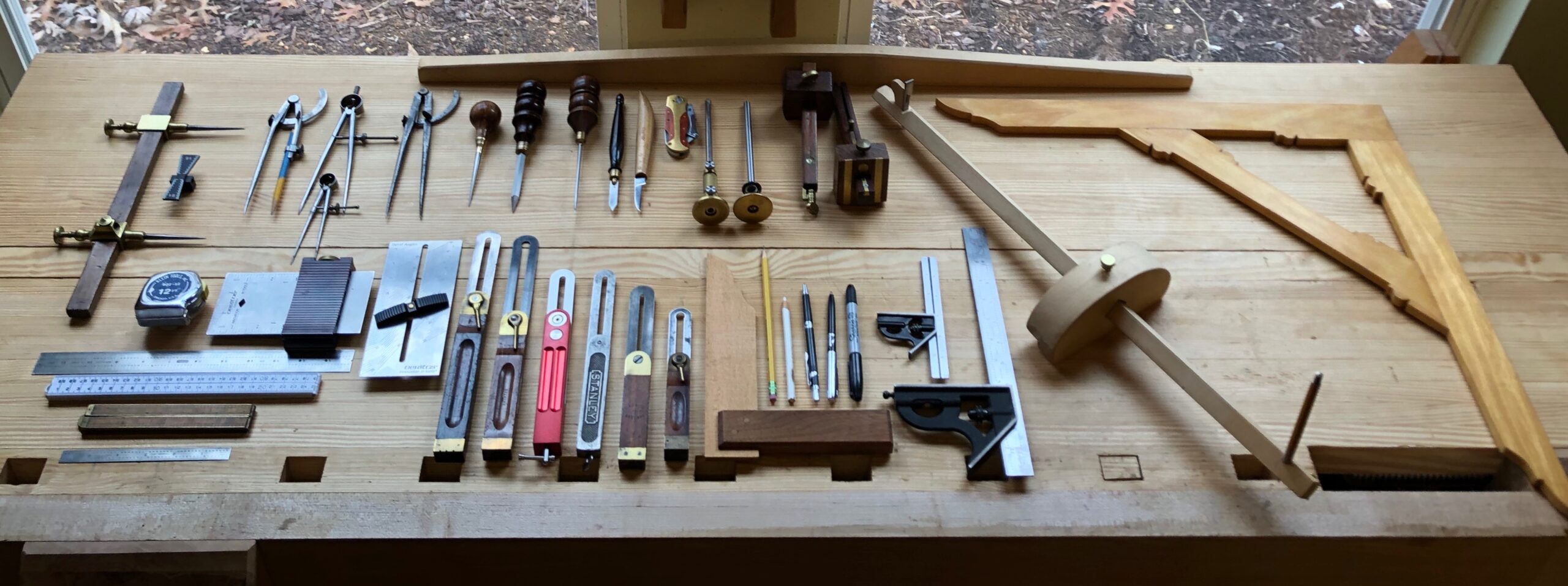
I’m staring a new blog series about my tools, their use and origins. I’m kinda obsessed with my tools. They fascinate me and I just sometimes go into my shop to clean them and marvel at their beauty and design. I would like to say upfront, this is my choice of tools. You may agree or disagree with my choices, but ultimately the tools I choose are my decision and not really subject to anyone else’s opinion. I do listen to others about what tools they like and some people with lots of experience I listen very carefully, but I’m not bound to any one philosophy or system or cult of personality. I have made many tool choice mistakes and will make more in the future. But I try to stick to one maxim: “Buy the best and most appropriate tool you can.” If you can’t afford to purchase a particular tool, make something and sell it to get the money to buy the tool. Sometimes I get lucky and find just the right vintage tool at an estate sale or garage sale, but lately I have been buying new very high-quality tools as I am not necessarily a vintage tool collector.
The tools in this series are just a snapshot in time of the tools I have now and not a definitive list of “must-have tools”. I have arrived at this current set of tools over about 10-years time and have chosen these based on experience, mainly, and also how much I like/love using these particular tools. I also love making tools. It seems every tool I make fills me with so much satisfaction that I wonder how I got this far in my life without doing this all along; better late than never.
This first entry is about my marking and measuring tools. Like all tools presented in this series, I use some tools more than others, and I will try to point out my favorites.
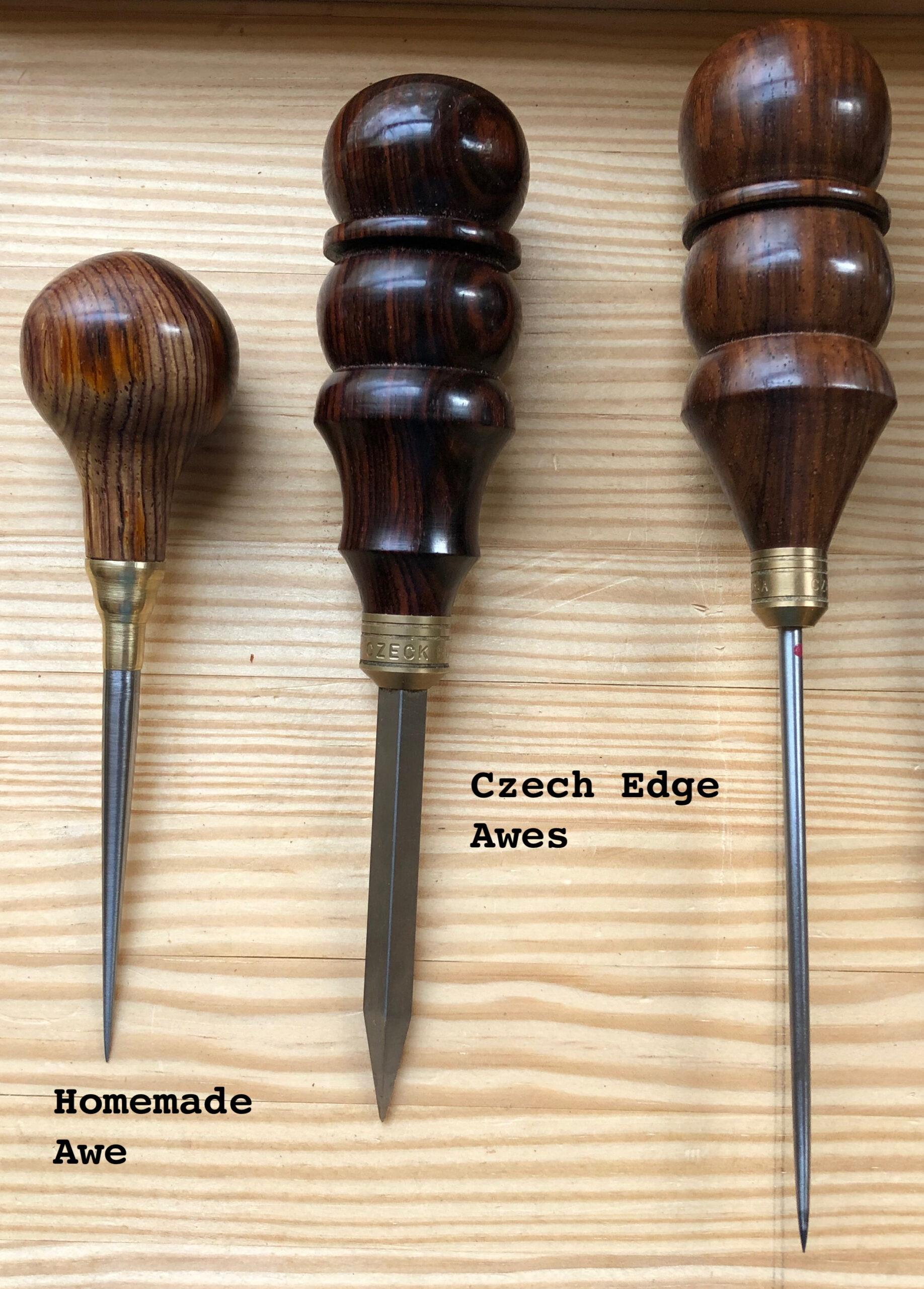
Awes
Awes are a group of tools that have a pretty wide variety of shapes, sizes and uses. I also dabble in leather work so I have a few more not pictured here. Here, I have a homemade scratch awe that I made from 1/4″ O1 tool steel, a brass pressure fitting and some cocobolo wood that I had on hand. This homemade awe (my new favorite) was inspired by one featured by Bob Emser from the “The Art of Boatbuilding“, but I made my own design and parts. It has the steel as a “full tang” construction, so it may be struck by a hammer; something I wouldn’t do for the other two Czech Edge awes. The middle awe is a “Bird Cage Awe” and is useful for “drilling” out a small starting hole for starting screws and also for my centers for my lathe. The awes on the right and left are considered “Scratch Awes”. They are for marking lines and puncturing holes. They are NOT for clearing out chips jammed on your plane mouth. Just one additional note about awes: Keep their points sharp.

Dividers
Speaking of pointy tools, above is my collection of old and new dividers. I have been acquiring these for quite some time and the Starretts are my latest addition to the group. Dividers are awesome and have a variety of uses from drawing (scratching) arcs in wood to dividing up equal sections for dovetails to setting up drawer divisions. They can be used with a sector to scale measurement up or down. The new Starretts are my preferred dividers; very sharp and very smooth.
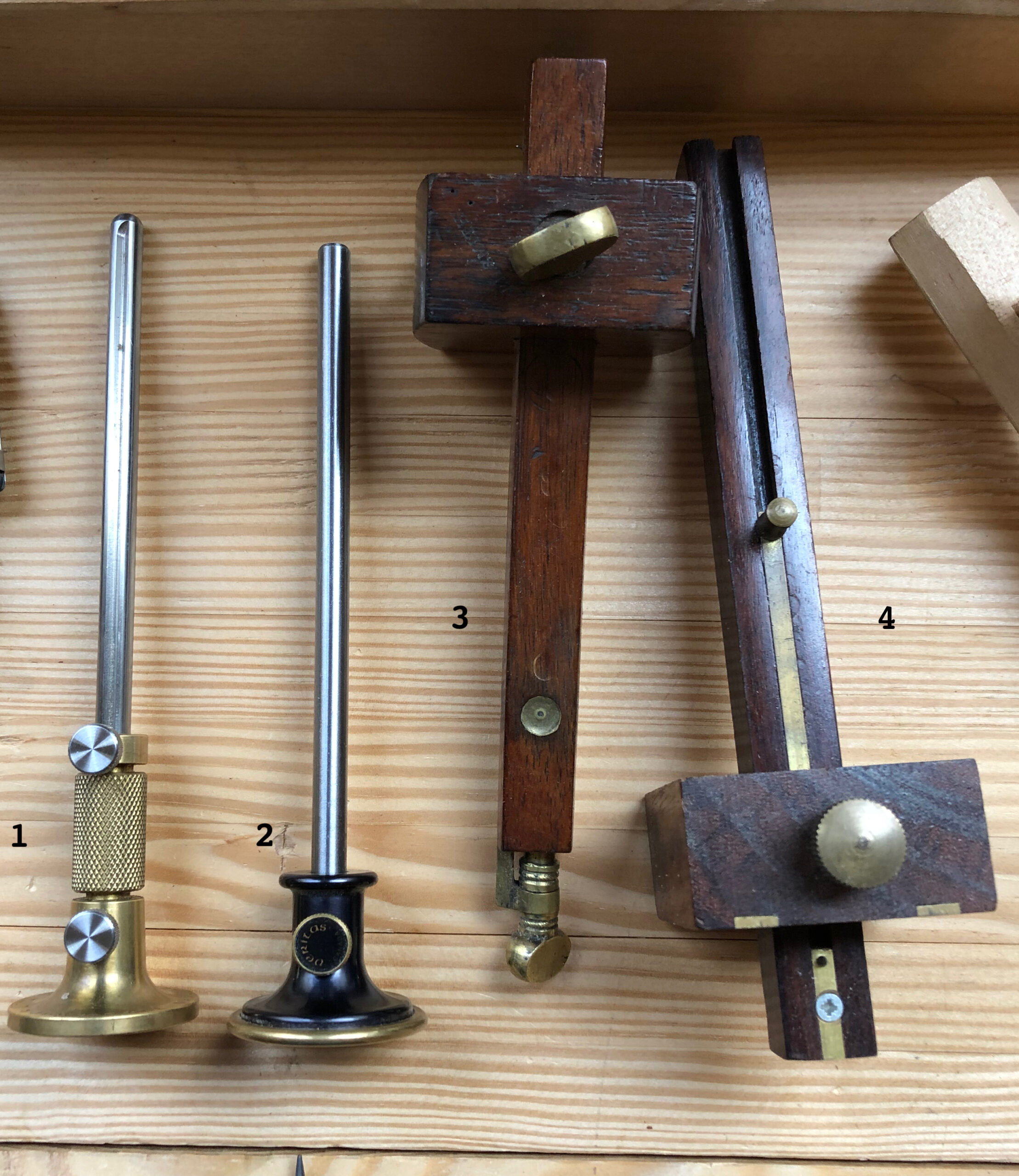
Marking Gauges
Marking Gauges are very handy for layout work. Having more than one is quite handy as you can leave them set during a project and keep your measurements accurate. If you only had only one, you would be changing it to different settings and you’d lose the exact setting of the previous measurement. The Tite Mark gauge is my favorite. This thing is silky smooth and dead accurate. It has a good weight in the hand and oozes quality; it’s a pleasure to use.
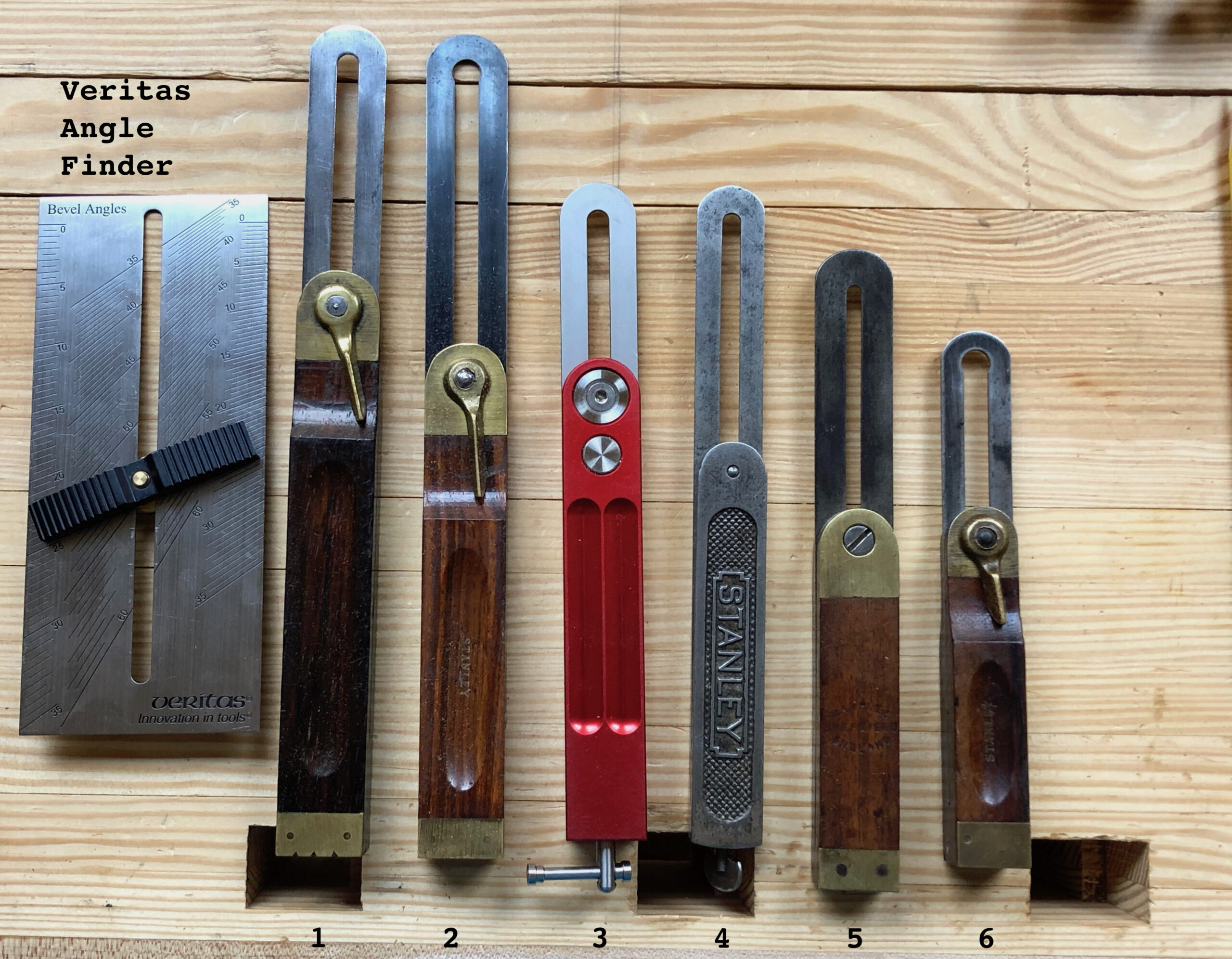
Bevel Gauges
Bevel gauges help you reproduce an angle or cut a specific angle. I may have a bevel gauge problem as indicated by the the image above. My two favorite are the antique Stanley (4) and the new Woodpeckers (3). They both have the locking mechanism on the bottom that wedges the blade and hold them immovable until loosened. The other vintage ones are usable, but you need to take care not to bump them or your setting will move. I really wanted an angle finder for some time and just this year bought the very nice Veritas one in the image above. I have used it a lot and I consider this essential kit.
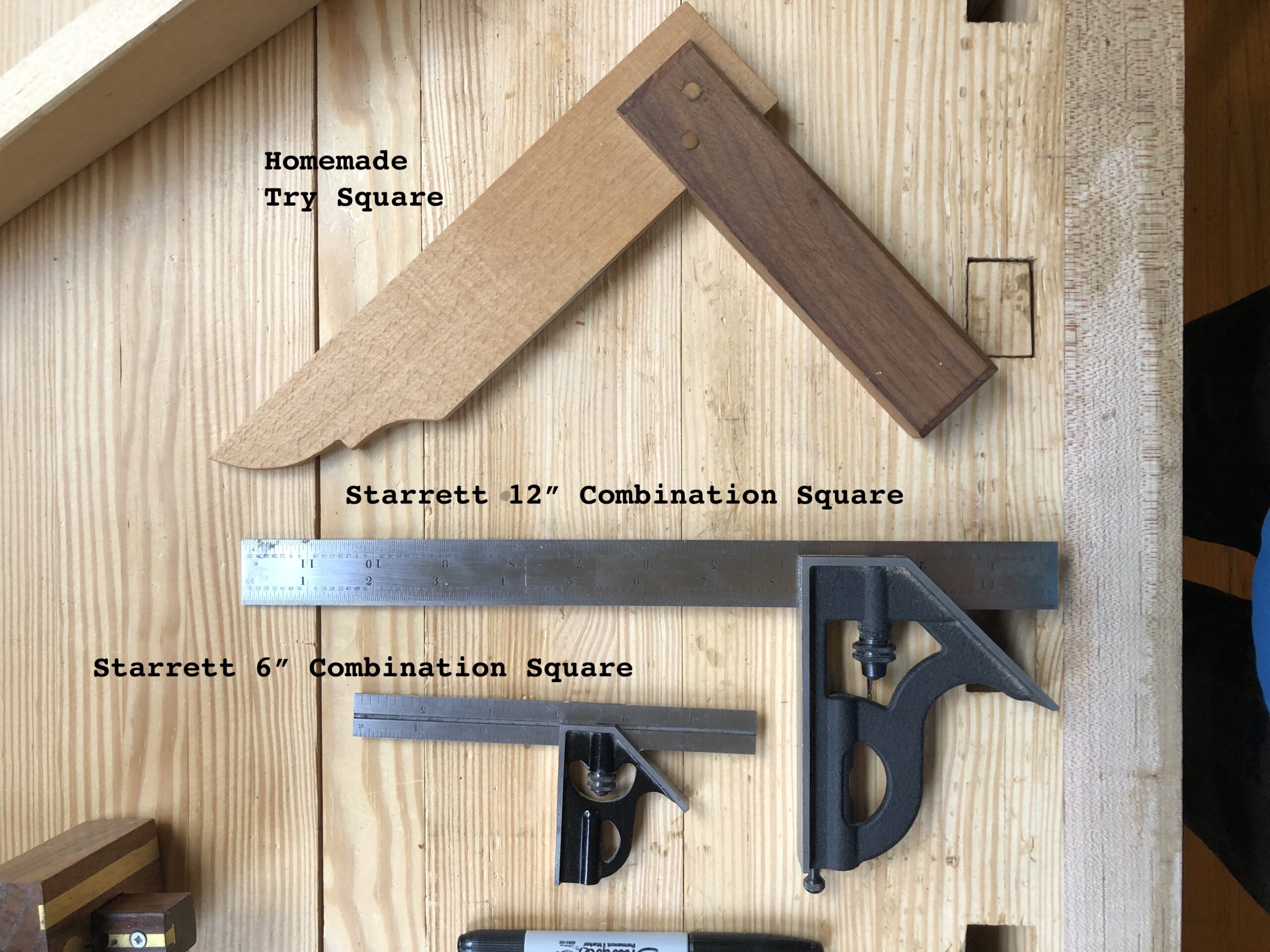
Squares
What can I say about squares? They are great, especially the Starrett combination squares. They are so versatile and nice to use. I also love using the try square I made from beech and walnut. It is light weight, very accurate and easy to true. I made two of these squares about a year ago. I use them both. All three are my favorites. Don’t make me choose.
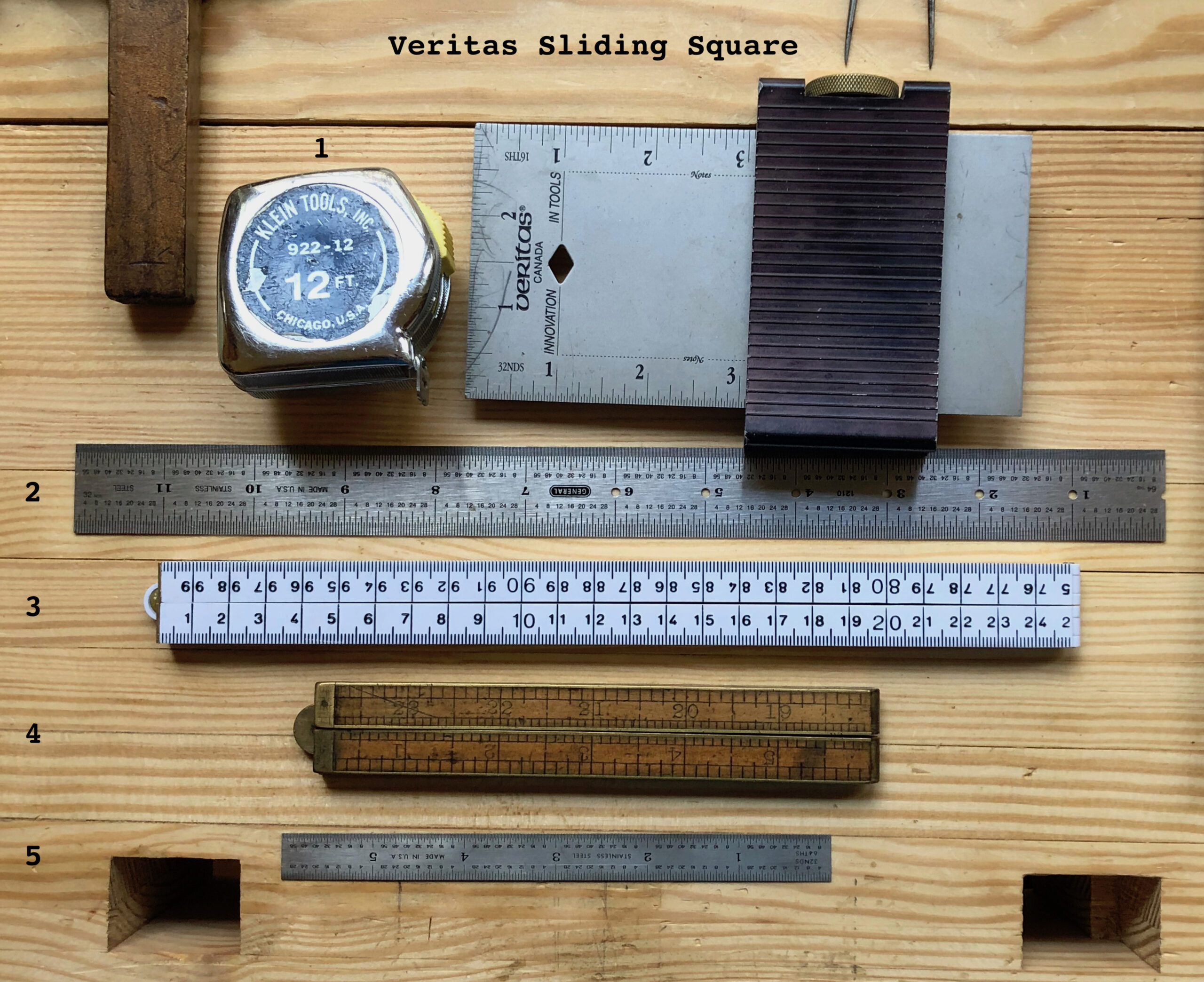
Rules
Rules rule! I mean that. Some people do not see the the need to measure stuff and that’s ok. I may be doing it all wrong, but it’s my way and I love to measure. Mind you, I mostly take measurement right off the piece, but measuring is still necessary for rough stock breakdown and sometimes to make sure you have enough stock to finish a project. The Veritas Sliding Square is not, in my opinion, essential to the work that I do, but I sure do use it a lot. It has many uses and I would not want to do woodwork without it. I have had this square for over 20 years and it’s still going strong. I also want to mention number (3) above, it is plastic and cheap and not my first choice. I like that it is metric and is a folding meter ruler, but besides that fact, I can use this a my sector. With its 25cm ( 9.84″) length of it’s legs, it makes a halfway decent sector. It works and I have used it as such. At some point I’m either going to have to make a really nice sector or buy one (good luck doing that I say to myself). I wish someone (I’m looking at you Tools For Working Wood) would make a nice sector kit so you could make your own out of your own wood.
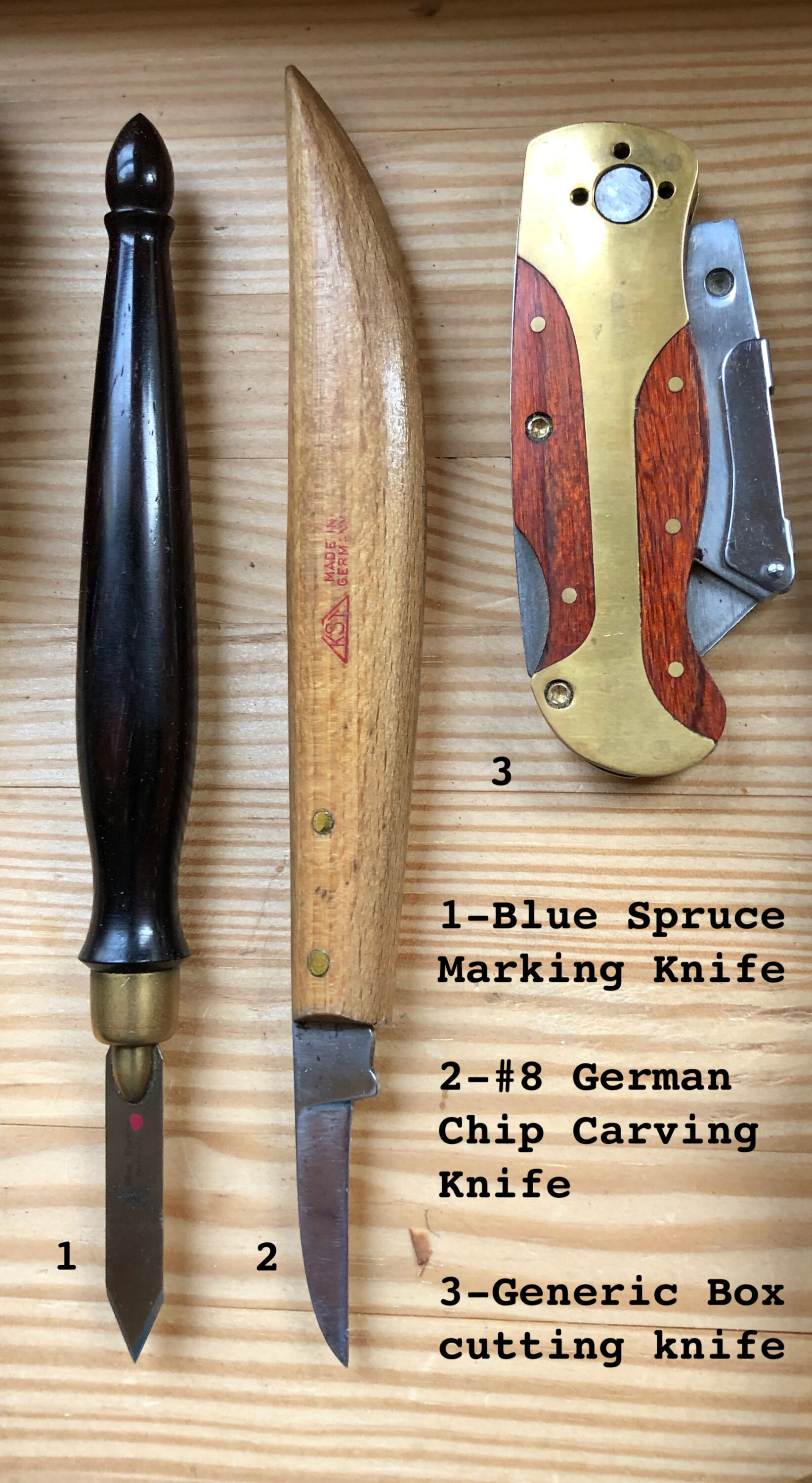
Marking Knives
Marking knives are very personal and everyone I talk to has an opinion. I look for three qualities in my marking knives. 1) They must make accurate cuts in wood; 2) They must be easy to sharpen; and, 3) They must be comfortable to use. I love the Blue Spruce marking knife for marking out dovetails, I love the last two for general marking. I regularly use all three
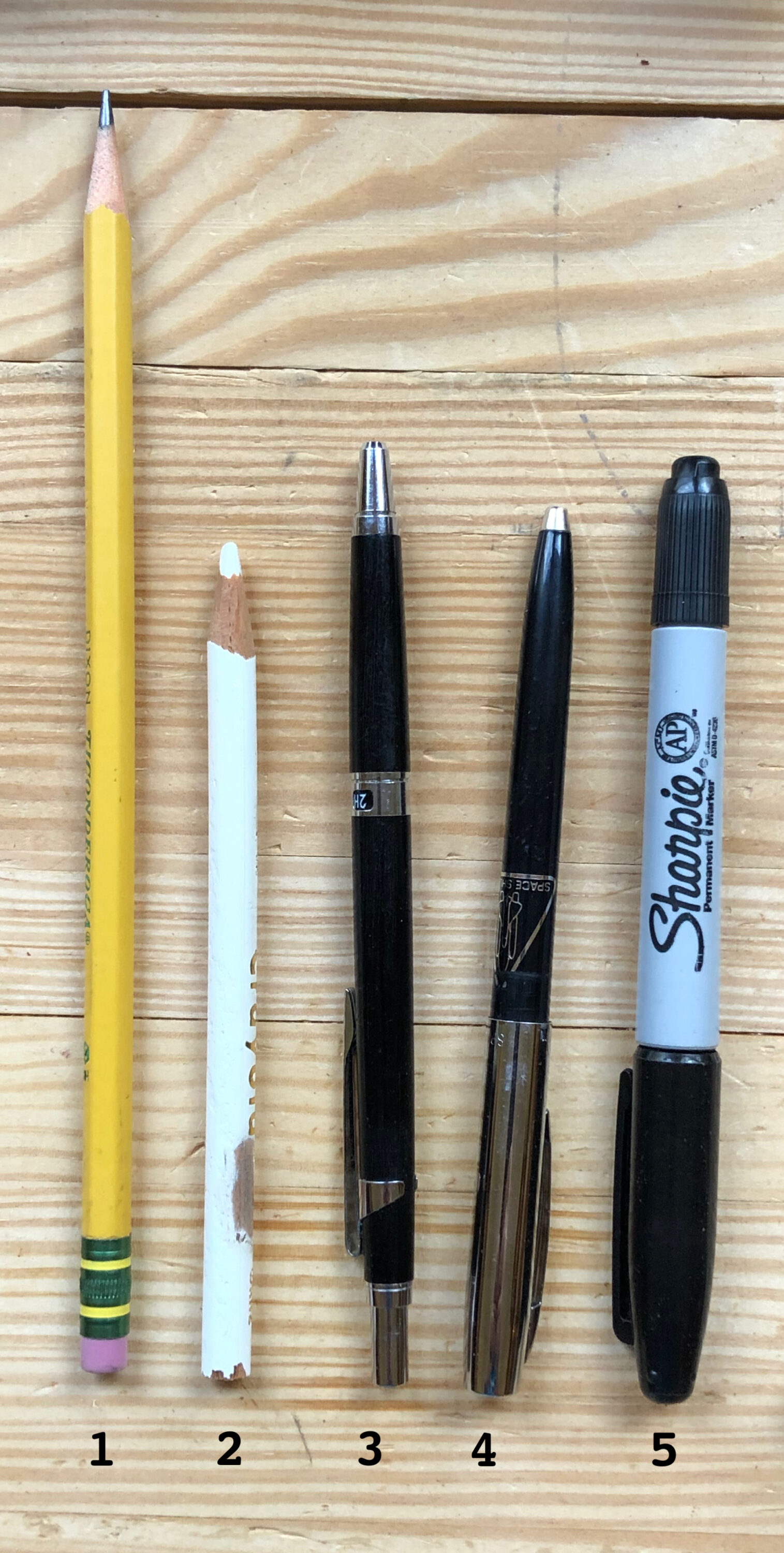
Writing Implements
I just like using a plain old #2 pencil; it’s what I mostly use. I use the white colored pencil for marking dark woods and the double-ended sharpie for thin and thick markings on my irons and metal bits and pieces. I love the Fisher Space pen for it’s resilience and that it just works. I do not user the pen on wood just notes and drawing on paper.
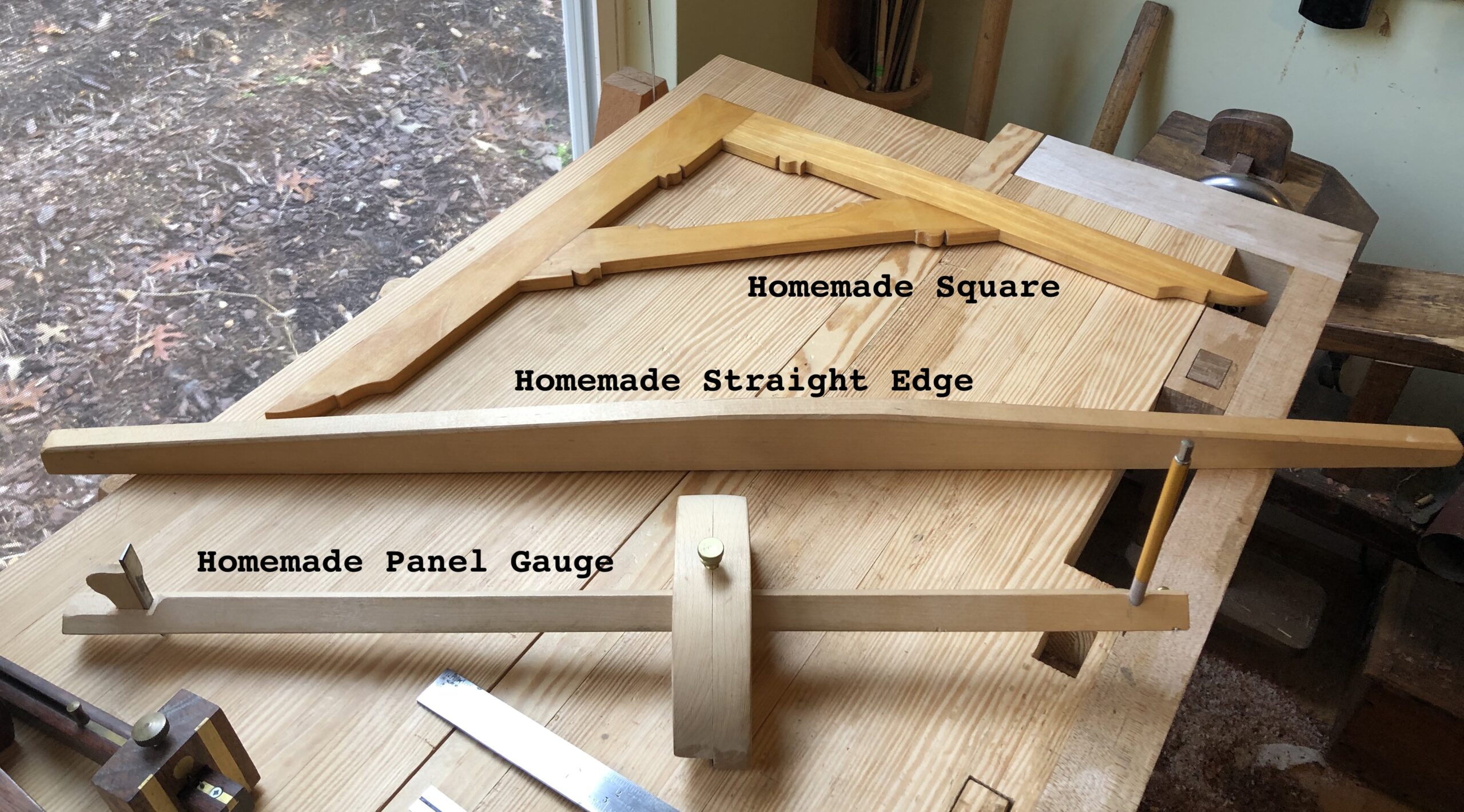
More Homemade Tools
I’ll say this again, I love making tools and I have used the three above extensively. Wood makes such a great Square and Straight Edge that I don’t like using the metal equivalents. I covered making the English Layout Square in a blog post “English Layout Square” in December 2012. The Panel Gauge is soooo nice! This design was inspired by the Lie Nielsen version and it is not wobbly and is very accurate; I would not change a thing about it.
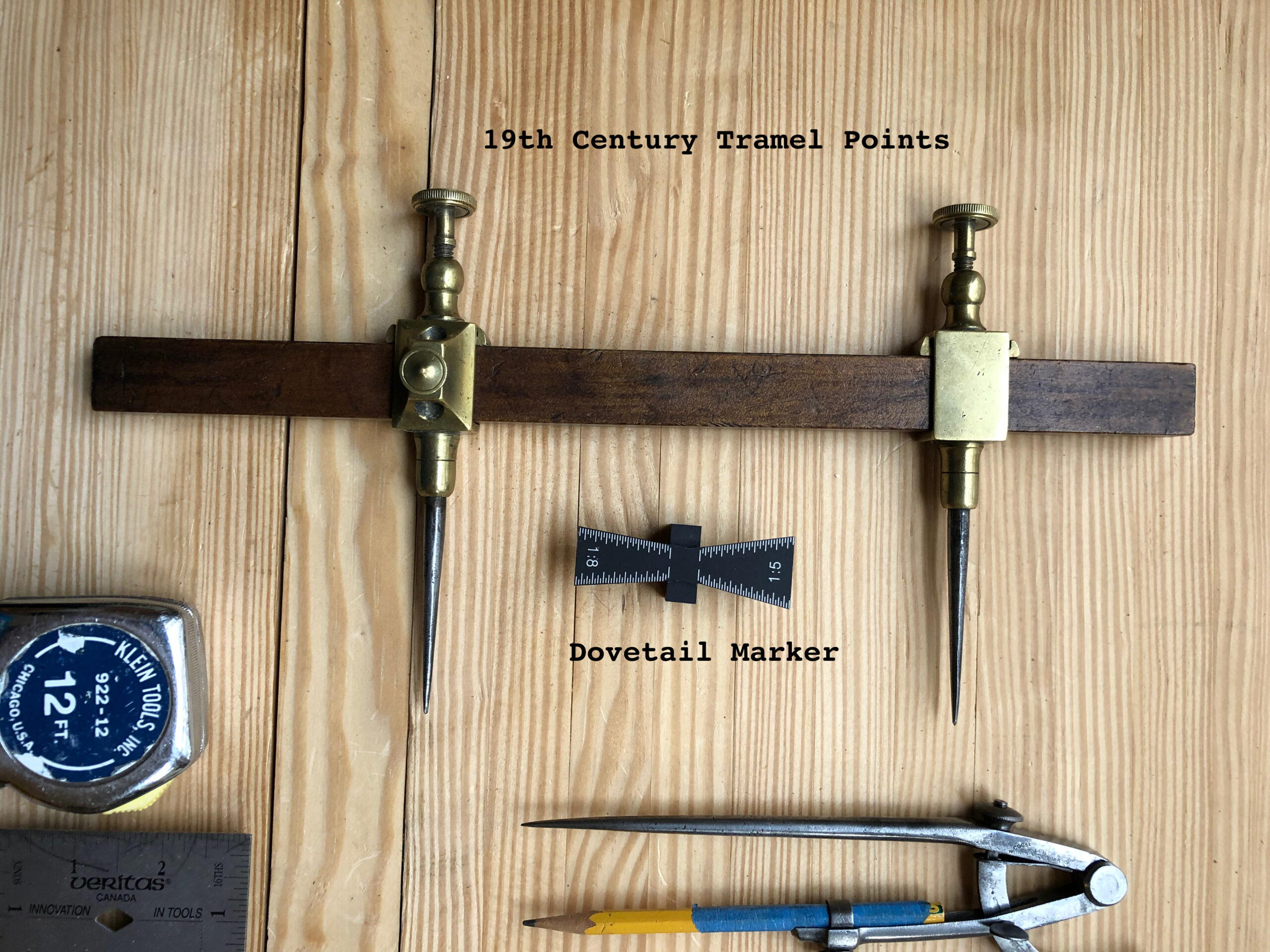
Misc Tools
These trammel points are beautiful. I purchased these at an MWTCA tool event for $20 and they are awesome! I have created a split pointed beam for them so they can be used as pinch rods as well. Double duty! The Dovetail Marker is not necessary kit, but a quick fix for marking out this joint.
Conclusion
I love my tools, not as much or in the same way as I love my wife or kids. But they do allow me to manipulate wood to make useful and beautiful projects. They give me a sense of wonder at what humans can accomplish and give insight into our ingenuity. When I use them, I feel a close connection to my ancestors and feel how they felt when using them. I hope my kids or future grandkids find these posts useful if they choose to become woodworkers. I hope they can feel a connection to me when using my tools like I do when using my grandfather’s old tools. Tools, like music can connect people across the centuries and from different parts of the world.
Peace,
Aaron
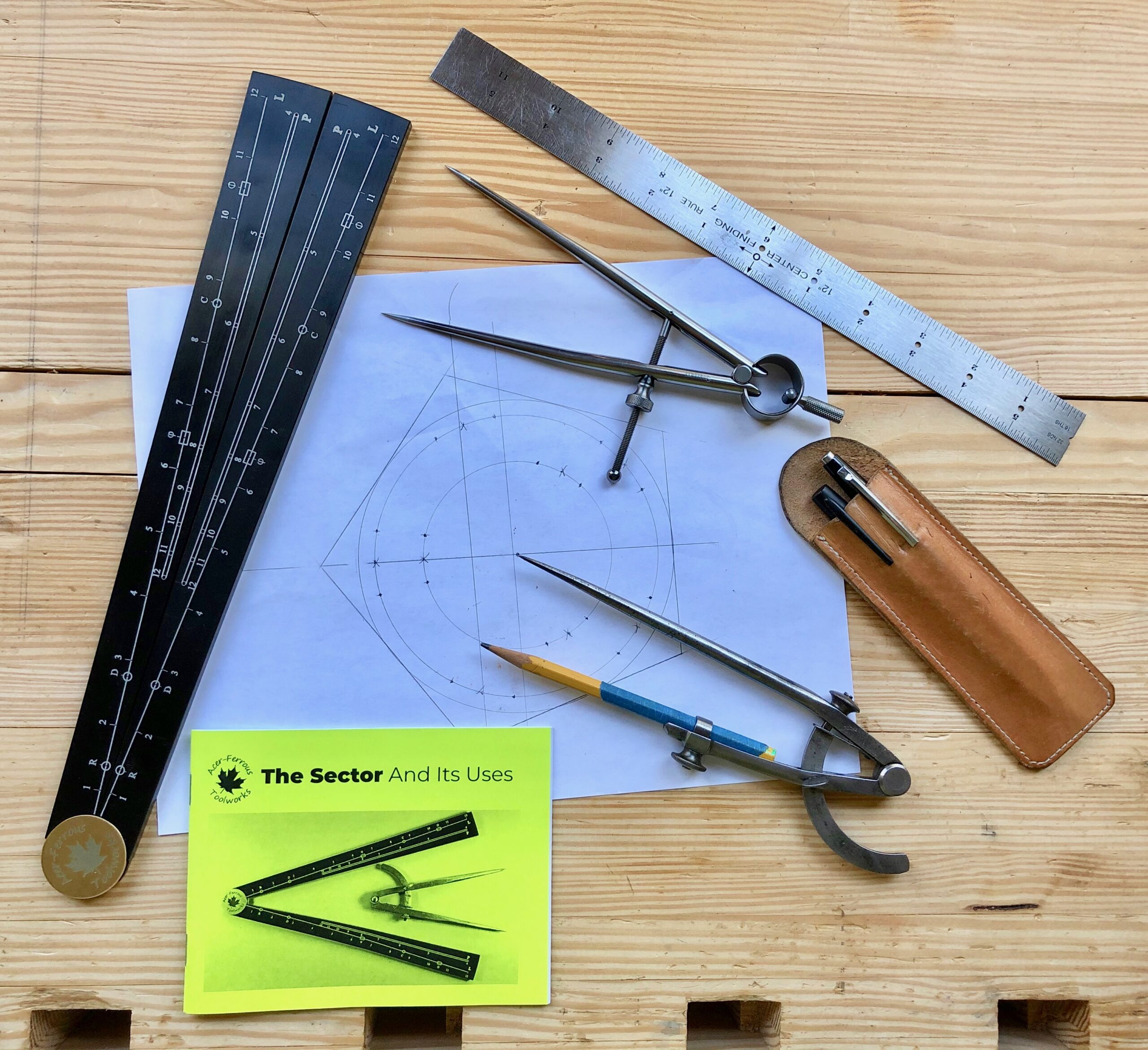
Post Holiday Update 30-Dec-2020
My wonderful wife bought me this beautiful Acer-Ferrous Toolworks Sector from Red Rose Reproductions. This is a excellent addition to my measuring and marking kit. I have used it several times since receiving it and it works with precession and ease.
